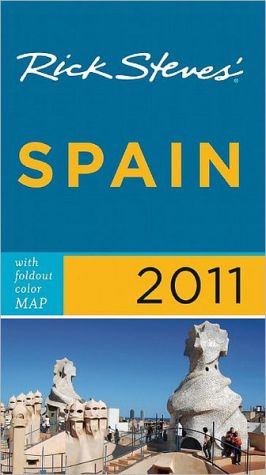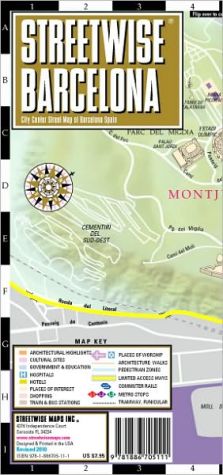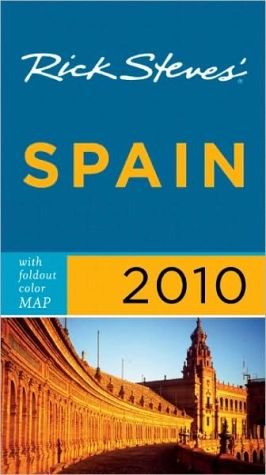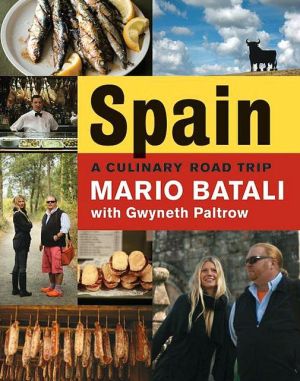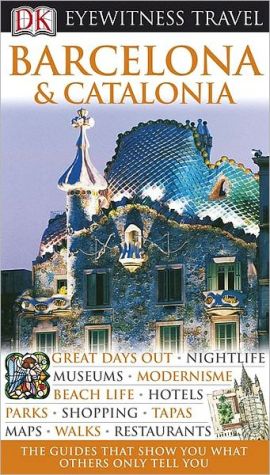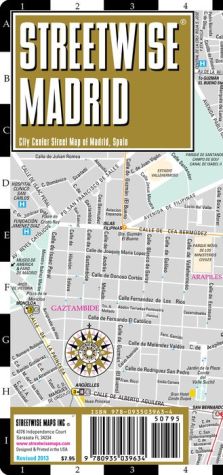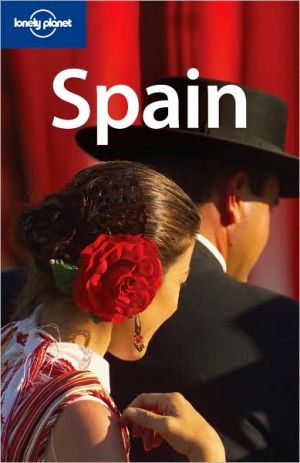Camino: A Journey of the Spirit
It has been nearly three decades since Shirley MacLaine commenced her brave and public commitment to chronicling her personal quest for spiritual understanding. In testament to the endurance and vitality of her message, each of her eight legendary bestsellers — from Don't Fall Off the Mountain to My Lucky Stars — continues today to attract, dazzle, and transform countless new readers. Now Shirley is back — with her most breathtakingly powerful and unique book yet.\ This is the story of a...
Search in google:
This is the story of a journey. It is the eagerly anticipated and altogether startling culmination of Shirley MacLaine's extraordinary -- and ultimately rewarding -- road through life. Publishers Weekly Following a centuries-old tradition, entertainer MacLaine walked nearly 500 miles across northern Spain's Camino Santiago de Compostela. This memoir of her formidable journey, like her other books, is a likely candidate for bestsellerdom as well as for ridicule in some quarters. An effort to "feel human again," her physical feat was daunting: she hiked for 10 hours a day on her own, often in intense heat, and slept in refugios--crowded, dirty shelters. Though she observes the small villages, historic cathedrals and other trekkers along the way, MacLaine is most interested in her interior journey. The actress, who has written before about her numerous past lives in such books as Out on a Limb and Dancing in the Light, senses that she's walked the Camino before as a coffee-colored, dark-haired woman of Charlemagne's time. Visited in dreams by a spiritual guide, she connects her various lives and soul mates, revealing that her former lover (in this life) was Olaf Palme, the assassinated Swedish Prime Minister. As the journey progresses, she revisits the origins of the human race in the edenic Lemuria, then the dawn of Atlantis and on to ADAMic civilization. On the earthly plane, MacLaine seems to enjoy evading the press, which she compares to fearsome dogs, and whose pursuit escalates as she gets closer to the end of the journey. Though she completed the Camino in 30 days instead of the planned 40, her arrival in Santiago lacks a Hollywood finale. Instead, she slips into the famous cathedral and leaves immediately for Madrid. Major ad/promo; author tour; 20-city TV satellite tour; 20-city radio satellite tour. (May) Copyright 2000 Cahners Business Information.\|
Chapter 1\ Whenever I travel, I prefer to do it light; however, seven pounds of lightness was new to me. Having done the trek herself, my Brazilian friend Anna Strong warned me that each ounce I carried in my backpack would become tons after a few weeks. Sooo...shoes would be essential and must be carefully selected — just one pair to walk in and one pair to put on at the end of each day. I have always had trouble with extraneous sounds while sleeping. I knew I would be sleeping in shelters (refugios) along the way with many others who snored, coughed, talked, and dreamed out loud. I wondered about my ever-present sound machine. Too heavy, I decided. I couldn't carry the batteries. I opted instead for earplugs, even though I had been told by my homeopath and acupuncturist that earplugs obstructed the meridians to the kidneys. I carried a light sleeping bag, two pairs of socks, two pairs of panties, two T-shirts, a small towel, a small washcloth, one bar of soap, one pair of shorts, one pair of light leggings to shield me from the sun's rays, some homeopathic remedies (for giardiases, nausea, cuts and bruises), Band-Aids, Nu Skin, adhesive tape, a water bottle (there would be fountains of clear water in every village along the way), my passport, several notebooks, a tiny address book, a few credit cards (which I vowed not to use), a little money (which I hoped I would not resort to), one Gortex jacket, one pair of Gortex slacks, one sweater (since I'd be walking in cold as well as hot weather), a sun hat, sunglasses, melatonin for sleep, and my precious Pearlcorder with many small tapes.\ I am a Taurus, and therefore a person who accumulates things. I immediately understood this journey would be an examination of what was essential to me. "The road and her energy will provide all you need," Anna told me. "She will tell you what to throw away — and you will become humble as a result. You will see what a temple your body really is, that it is not a prison, and you will discover your essence." She told me I would find a stick to walk with. It would speak to me as though it would want to help. My feet would derive energy from the ground itself, which is why it is infinitely better to walk than to ride the Camino in a vehicle. I would receive messages from the path as though it was talking to me, until I became the path and all of its history.\ I met with others who had taken the pilgrimage. They advised me not to eat too much and to drink lots of water — at least two liters per day. There would be many good restaurants, but it was best to stay within the energy of the path's intent, which was to be essentially stripped of trappings. I should not be afraid of anything while trekking — first of all, they told me, the Spanish government protected all pilgrims and had harsh laws against interfering with a pilgrim's progress. I was told it would be better to walk alone, even though I would encounter many people along the way. Everything I carried with me would be a distraction. I should learn to let go. And I should be prepared to die, because to do such a pilgrimage meant I was ready to give up the old values that conflicted my life.\ I could honestly say that I had no problem with dying if that was what was meant to be. I had had enough of the state of affairs as I knew them to be. I was ready for a new understanding to propel me forward for the rest of my life.\ In preparing for my walk, I decided to rehearse with my backpack.\ I packed all the items and one day decided to walk the hills of Calabasas in California as a precursor. That is exactly what happened. I felt "precursed" with what I experienced.\ par\ It was a trail I had often taken. As I parked my car at the entrance, out of the corner of my eye I noticed a Latino man, scruffy, no shoes, and slightly wild-eyed, in the trees near the trail.\ I ignored him, locked my car, strapped on my backpack, and began my hike. I fingered my Swiss Army knife and made a mental note that I was safe with it. I also noted that I would try to make it way up the trail to a bench where I knew I could remove my backpack and rest.\ Thus began my contemplation on how goal-oriented I was. A goal was so important to me that sometimes the reaching of it justified the means by which I accomplished it. I walked for miles thinking about reaching that bench. Then I walked even further. The backpack was heavy and the hike was becoming a struggle. I stopped and put some Emergency C into my water bottle. I drank and walked on. Finally, I stopped, exhausted, and realized I had long since passed the bench that had been my goal! The significance of this small event was not lost on me. I was truly disappointed in my overachievement. But I had often done such things, remaining separated from the path I was on because of my intense desire to reach the goal. Maybe that was the definition of "success" in this world. I was an example of the accepted term, when what I was looking for was the true meaning of "success." One has to achieve some version of success in order to know there is another version.\ In any case, I turned around, retraced my steps, and after some miles, recognized the bench. I decided not to rest on it and continued down the mountain. When I reached my car, there was the Latino man, looking in worse shape than before.\ "May I help you?" I asked him.\ "My feet are burning from no shoes," he said. "I need a ride to my car."\ I realized I was talking to a man of Spanish descent and feeling almost as though I were living a future event on the Camino. I thought, "I should be kind to strangers."\ I offered him a ride to his car, which I supposed wasn't far away. He climbed in beside me. He was filthy and smelled bad.\ "I don't know why I'm doing this," he said in a confused state.\ "Sometimes we all do things for reasons we don't understand," I answered, thinking of what I would be doing in a week without understanding it either. I started the car and told him I was going to do the Santiago de Compostela pilgrimage. He seemed to understand and know it.\ "Are you Catholic?" I asked.\ He nodded and said, "Yes."\ "Are you doing penance?" I asked. He nodded.\ "Are you doing penance?" he asked.\ I said I didn't think so.\ Then he looked at my breasts. I had made a conscious decision not to wear a bra on the Camino because the straps hurt my shoulders with the backpack. It had occurred to me that such an elimination of underwear would be provocative. I wondered if I had manifested my concern into a reality.\ The man continued to stare at my breasts. Oh, God, I thought. This could be dangerous. There was no one in sight for miles.\ He finally took his eyes off my anatomy and said, "Can I make love to you?"\ It was surreal. I slammed on the brakes and erupted. "Are you out of your mind?" I screamed. "What the hell do you think you're doing? Of course not, you idiot. I picked you up because you needed help, your feet were burning, you needed water and to return to your car, and this is what you do? You are outrageous!" I was furious, which seemed to activate some sense of misplaced justice in his mind.\ "There you go, you see?" he said. "I asked you, instead of demanding, and you won't do it."\ My mouth fell open. I was in trouble now. I thought of really going after him more irately, but something I saw flicker across his face stopped me. He had not touched me or advanced toward me physically. Then he said, "I passed my car. Let me out," he demanded.\ There was no car in sight anywhere.\ "Sure," I answered. He opened the door on his side and climbed out.\ "Listen," I said, "you should watch that sex stuff, you know. It can get you in a lot of trouble."\ Over his shoulder he said, "Yes, thank you. I know. I'm always doing this."\ Then he walked away.\ I sat in my car in a state of bewilderment. Had he been real? It was as though an experiential vision had just happened to me. I turned to look at him again. He had disappeared. There was no man and no car. I vowed to never be afraid of going braless again, and I knew I would have to give much thought to the truth that reality was where the mind was and that I had been so determined to make a goal of my bench that I had passed it....Reality simply was where the mind was. I could understand more deeply why I was an actress. I could manifest what I needed in reality. I had manifested a barefoot, filthy wanderer to warn me that the Camino was feminine and, as a result, human sexuality would rise. Everyone had told me that the Camino offered those who walked it a love affair. It was the individual's choice whether to take it. Some weeks later, I would be faced with that choice.\ Copyright © 2000 by Shirley MacLaine
\ From Barnes & NobleThe Barnes & Noble Review\ On the path of The Camino, Shirley MacLaine wanders through puzzling visions. Often, these visions seem to her too strange to share; at one point, she wonders: "Could I ever tell my dream visions to anyone without seeing his eyes roll? It took an act of control not to roll my eyes at myself!" MacLaine is right to worry about revealing her premonitions. Skeptics too easily dismiss spiritual groping as vague-headed silliness, while they joke about subjects they cannot fathom. Despite the danger, however, MacLaine boldly records her spiritual wanderings in The Camino. In it, as in each of her bestselling memoirs, MacLaine relates her experiences in simple, forthright terms. She braves the critics and their eye-rolling to allow us a share in her spiritual struggles. \ MacLaine's many books have chronicled her life's metaphysical stretches: In Out on a Limb, for example, she surprised readers by revealing her faith in past lives. In each of her revelations, MacLaine explores the connections between her public and private worlds. For MacLaine, the spiritual realm is connected to physical matter -- and she willingly traverses the paths that connect them. In The Camino, she describes her thoughts and adventures along the Camino trail, a 500-mile pilgrimage that begins in France and cuts through northern Spain to the cathedral of Santiago de Compostela. The Camino presents a physical challenge, even for a lifelong dancer like MacLaine: It is filthy, dangerous, and tiring. MacLaine walks it alone, beset by dogs, deceptive tourists, and the violent taunting of the press. She wears blisters into her heels; she carves ten pounds off her lean dancer's frame; she walks miserably through walls of bees. The Camino, as an exercise, pushes MacLaine to her physical limits.\ But the hike also pushes MacLaine spiritually. Throughout the brutal trek, MacLaine confronts a series of visions in which she begins to investigate both her solitude and her personal relationships. In many of MacLaine's visions -- or memories -- she sees herself in another life, as a Moorish girl who had once ridden across the Camino. In this persona, MacLaine listens to a monk named John the Scot, who describes the healing possibilities of the pilgrim's trail. She explains: "He said the Camino accentuated feelings of unresolved issues&.the dreams and visions of people walking the trail created footmarks of past truth, which created reminiscences, which were part of the human subconscious lurking within each of us as foreshadowings." MacLaine and her ghostly mentor hint, that is, that visions can help each person understand her past distress. And by understanding this distress, somehow she can make room for a pleasure that can ease life and death. MacLaine and John write: "The joy comes when the cup of sorrow is emptied. Therefore, the joys and the sorrows along the Camino are the rediscovery of your own soul."\ MacLaine's journey moves her through episodes in her Moorish life, where she finds herself accepting Christianity along with her own magical powers of healing. This inner journey culminates with a prolonged vision of the beginnings of the world, in which MacLaine explores her desire to be alone and her powerful need for human connection. In this final vision, MacLaine sees herself in another era of human evolution, in which androgynous persons become sexed in order to approach God in their reconnection. She dreams of civilizations in which total connection is possible and then reawakens to her own solitude on the trail.\ For MacLaine, these visions need not be material to be meaningful; they need only encourage moral growth. She shrugs: "The Camino&seemed to be a walking meditation on what I had learned internally&.If the Garden of Eden had indeed been lost, I would seek to find it again. If other terrestrial species had sought to achieve that balance themselves, then I would give more attention to UFO sightings and why they were here&. And if we had once been androgynous, then I would cease to stereotype any person's sexual orientation or preference. If the Camino's energy had amplified all those memories for me, then I would trust it." Most importantly, then, MacLaine's imagined worlds (or memories) guide her to explore her beliefs more deeply and to speak about them more honestly.\ In this latest chronicle of discovery, MacLaine bravely and openly explores her own imagination, memories, and heart. In doing so, she pushes her readers to think more freely about their own spiritual journeys. MacLaine's progress encourages us to connect dreams with physical life, to develop our bodies morally. The journey is incredible. (Jesse Gale)\ \ \ \ \ \ Publishers Weekly - Publisher's Weekly\ Following a centuries-old tradition, entertainer MacLaine walked nearly 500 miles across northern Spain's Camino Santiago de Compostela. This memoir of her formidable journey, like her other books, is a likely candidate for bestsellerdom as well as for ridicule in some quarters. An effort to "feel human again," her physical feat was daunting: she hiked for 10 hours a day on her own, often in intense heat, and slept in refugios--crowded, dirty shelters. Though she observes the small villages, historic cathedrals and other trekkers along the way, MacLaine is most interested in her interior journey. The actress, who has written before about her numerous past lives in such books as Out on a Limb and Dancing in the Light, senses that she's walked the Camino before as a coffee-colored, dark-haired woman of Charlemagne's time. Visited in dreams by a spiritual guide, she connects her various lives and soul mates, revealing that her former lover (in this life) was Olaf Palme, the assassinated Swedish Prime Minister. As the journey progresses, she revisits the origins of the human race in the edenic Lemuria, then the dawn of Atlantis and on to ADAMic civilization. On the earthly plane, MacLaine seems to enjoy evading the press, which she compares to fearsome dogs, and whose pursuit escalates as she gets closer to the end of the journey. Though she completed the Camino in 30 days instead of the planned 40, her arrival in Santiago lacks a Hollywood finale. Instead, she slips into the famous cathedral and leaves immediately for Madrid. Major ad/promo; author tour; 20-city TV satellite tour; 20-city radio satellite tour. (May) Copyright 2000 Cahners Business Information.\|\ \ \ Library JournalMacLaine's eighth book confirms her gift for storytelling; her pitch and timing are perfect. She wryly blends her spirituality with self-deprecating humor. While working in Brazil, the actress received a handwritten, anonymous letter urging her to make a pilgrimage along the Santiago de Compostela Camino in Spain. She discussed the letter with friends, gave some thought to the notion, and promptly forgot all about the idea. Several years later, again while working in Brazil, MacLaine received another anonymous letter in the same handwriting again urging her to make the journey. Eventually, she determined that the time had come for her to make the trip. People from St. Francis of Assisi to Dante and Chaucer have taken this 500-mile walk across the highways, mountains, cities, villages, and fields in Spain. The government offers protection for spiritual seekers, and villagers routinely offer food and shelter. MacLaine, who is in her sixth decade, found the trip to be both an intense physical and spiritual challenge. She reveals her dreams, fears, and humiliations with honesty and insight. Recommended for libraries with large biography and spiritual collections.--Pam Kingsbury, Florence, AL Copyright 2000 Cahners Business Information.\ \

